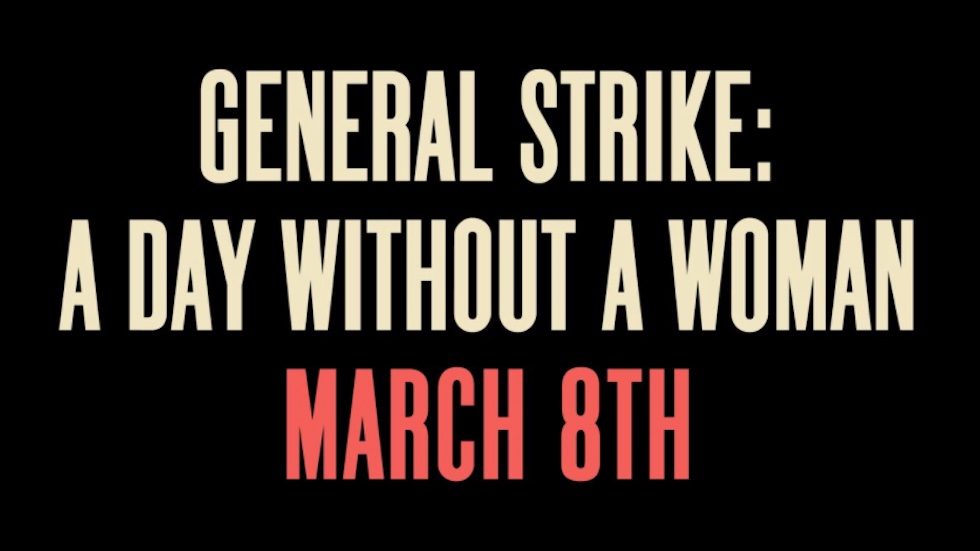
Every year, since the 1900s, International Women’s Day has been offered as a celebration of women’s achievements. This year was different. Women went to the streets not to celebrate but to demand. The international women’s strike also called “a day without a woman” has been organized in more than 50 countries. Women took the streets in the Middle East, Asia, Africa, Europe, Australia, and the Americas.
In 1975, Icelandic women showed that if women stopped all their activities at home and at work, the country could not function. That day started an important movement in Iceland, certainly, since the country elected the first female president, and elsewhere as well.
In October 2016, women in Poland, threatened by a total ban on abortion, organized. They were followed by women in South Korea, Argentina and Sweden. On January 21st, after inauguration of the new sinister president in the United States, women went to the streets and women around the world took the streets in solidarity.
On March 8th, women again showed their solidarity. They called a strike. The strike was a call to end unfair wages, austerity, inequalities and wage inequalities in particular, precarious work, patriarchal control of women’s bodies, femicides, and more.
It should be the responsibility of the state to bring these demands to reality. Instead, many states have moved away from their responsibilities, which is why women took the streets worldwide. The state is now more involved in supporting the neoliberal economic order than to be the guarantor of the well-being of women and men. Every year, the World Economic Forum publishes The Global Gender Gap Report. This year’s report says that the economic gender gap has regressed to the level of 2008. According to the report, equal pay between women and men is now unattainable for another 170 years.
There is no natural evolution to equality, justice and dignity for women. This strike is the beginning of an international organizing and solidarity movement for women.
In many countries, it is not always easy to strike for women. In the United States, many school systems shut down, as in Alexandria, Virgnia; Princes Georges County, Maryland; and many other counties, because women called in to take the day off. In the United States, with each day’s executive order, the danger for women and humanity becomes more real. Responding to this clear and present danger, the United States-based organizers aimed to repoliticize the day.
In Washington, DC, the crowd gathered wearing red, the color of active and political dissent. Among the marchers, women from Latin America talked to us in front of the Department of Labor where the march started.
When the march reached a plaza with a podium, people were invited to reflect on the importance of the work of women in unions and their role in wage negotiations and in stopping the abuse of workers, all workers.
A speaker addressed the threat for women that the current “predator in chief” represents: “This regime cannot be taken lightly and the fight has to be taken to the next level.” The next level entails forming strong solidarity movements. Women are in thrall of the abusive patriarchal order that uses them as cheap labor, weapons of war, reproductive slave, and more. Solidarity must be international as well as national and local.
The sisters in solidarity from the restaurant industry reminded the audience what it means to work for tips: sexual harassment, and all kinds of assaults and threats. They called for fair wages. Some Congresswomen, who were in white for Trump’s first address to the Congress, came in solidarity with the movement.
The place was joyful and serious about forming new solidarities, conscious of the racial and social divisions that keep women in danger of being raped, killed, degraded, ignored, in their own rights and dignity.
Yes, Women’s Lives Matter, Black Lives Matter, Indigenous Lives Matter.
A number of women took the stage to honor the women who lost their lives in historical and contemporary struggles, shouting “Say her name!” Listen to their voices and say their names:

(Photo Credit 1: The Hill) (Photo Credit 2: Slate / Reuters / Brendan McDermid)